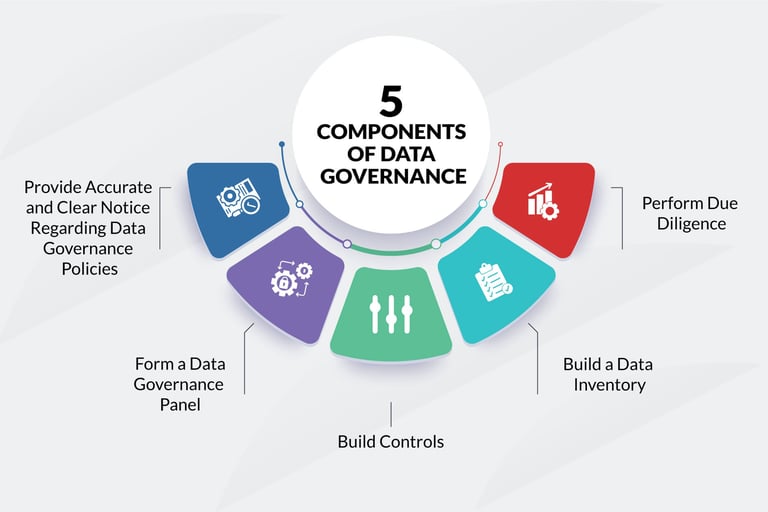Data governance within cybersecurity is the framework of rules, policies, and processes that an organization establishes to ensure the security, integrity, and privacy of its data. It's about defining who has access to what data, how that data is used, and how it's protected throughout its lifecycle.
Here's a breakdown:
Key Aspects of Data Governance in Cybersecurity:
Data Classification:
Categorizing data based on its sensitivity (e.g., public, confidential, restricted). This allows organizations to apply appropriate security controls to each data type.
Access Control:
Implementing policies and technologies to restrict access to sensitive data to authorized individuals. This often involves the principle of least privilege, granting users only the necessary permissions.
Data Lifecycle Management:
Establishing procedures for how data is handled from creation to deletion, including storage, transmission, and archiving.
Compliance:
Ensuring that data handling practices comply with relevant laws and regulations (e.g., GDPR, HIPAA, CCPA).
Data Integrity:
Maintaining the accuracy and consistency of data, and protecting it from unauthorized modification.
Auditing and Monitoring:
Tracking data access and usage to detect and respond to security incidents.
Why Data Governance Matters in Cybersecurity:
Protection of Sensitive Information:
Data governance helps organizations safeguard valuable data, such as customer information, financial records, and intellectual property, from unauthorized access and cyber threats.
Regulatory Compliance:
Many industries are subject to strict data privacy regulations. Effective data governance is essential for meeting these requirements and avoiding costly penalties.
Risk Mitigation:
By establishing clear data handling policies and procedures, organizations can reduce the risk of data breaches and other security incidents.
Enhanced Security Posture:
Data governance provides a structured approach to data security, enabling organizations to proactively identify and address vulnerabilities.
Building Customer Trust:
Demonstrating a commitment to data security and privacy can enhance customer trust and loyalty.
Improved Decision-Making:
When data is well governed, it is more accurate and reliable. This allows organizations to make better, more informed business decisions.
In essence, data governance provides the foundation for a strong cybersecurity posture by ensuring that data is protected throughout its lifecycle.


